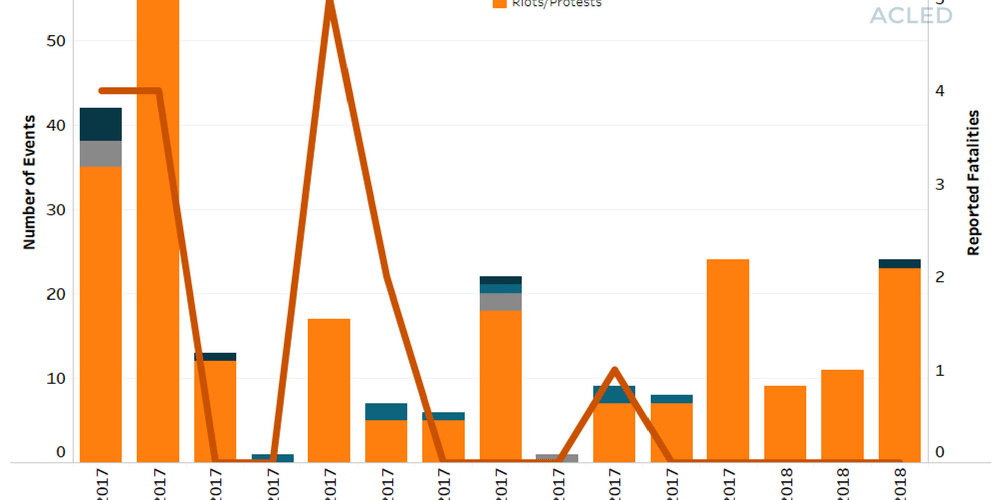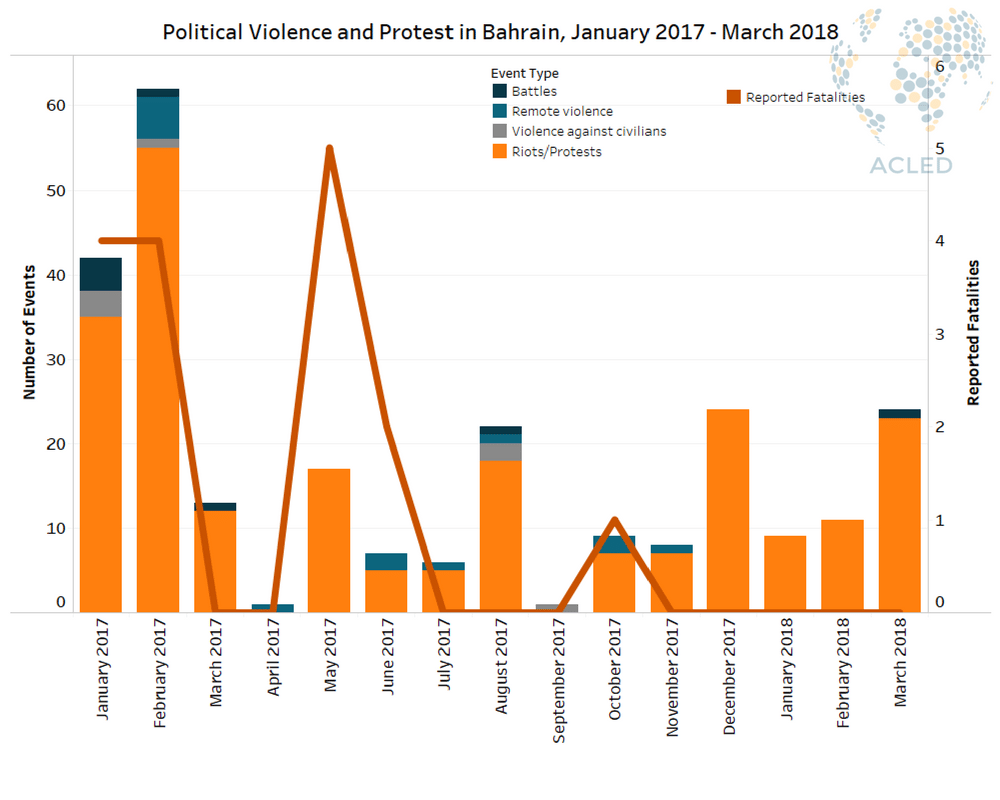In 2017, Bahrain experienced high levels of riots and protests, given the size of the country and its population, largely focused in the northern governorate and in the suburbs of the capital Manama. Demonstrations, which have remained constant throughout 2017, have not stopped in the first three months of 2018, which suggests this trend will persist in 2018. The reasons behind the recent unrest lies in the growing repression targeting Bahraini political groups and religious figures, which intensified in 2017(Human Rights Watch, World Report 2018).
This repression has taken a variety of forms. For example, human rights organisations have long reported cases of torture and inhumane treatment inside state prisons, with the victims generally being opponents of the government (Human Rights Watch, November 22, 2015). In this regard, early last year, three Shiite men accused of terrorism were executed sparking countrywide protests (Middle East Eye, January 16, 2017). Additionally, Bahraini authorities have also outlawed two of the major opposition groups, the leftist Wa’ad and the al-Wefaq National Islamic Society, which were forcibly dissolved in 2017 and 2018 (Amnesty International, September 7, 2017; Asharq al-Awsat, February 20, 2018).
Repression has also targeted prominent religious leaders hailing from the Shiite community. On May 23, 2017, military forces stormed the village of Sanabis to arrest an influent Shiite cleric Sheikh Isa Qassim. Qassim, leader of the al-Wefaq Society, was accused of money laundering and had lived under de facto house arrest since he was stripped of his Bahraini citizenship in June 2016 (The New York Times, November 27, 2017). Violence escalated across the country following his arrest: that same day, in Diraz, the Sheikh’s native village, five people died in clashes with the police, while demonstrations took place in several villages outside the capital Manama.
All these episodes seem to point to a systematic effort at curbing dissent and political opposition. Government repression, however, has faced sustained popular opposition, with nearly 200 events of riots and protest recorded by ACLED in 2017 and more than 40 in the first three months of 2018. Despite the government’s actions, anti-government demonstrations as well as sporadic IED bombings and armed attacks against security forces constitute an ever-present threat for the state. More recent mass arrests of alleged militants (Agence France Presse, January 21, 2018; The National, March 3, 2018) also seem unlikely to deter fresh demonstrations and renewed anti-government activity.







